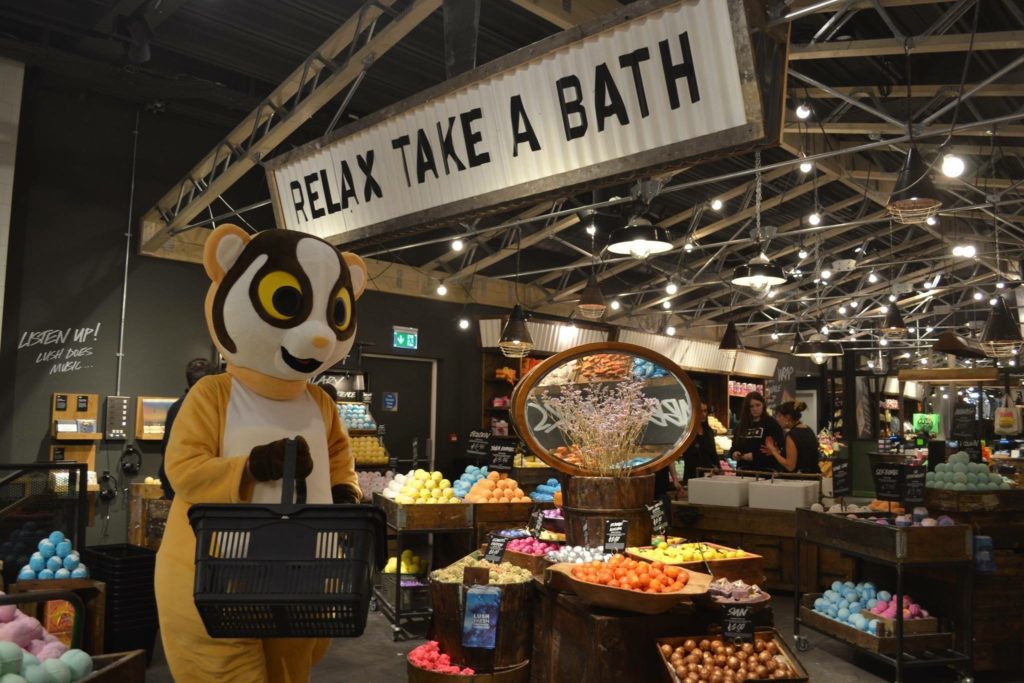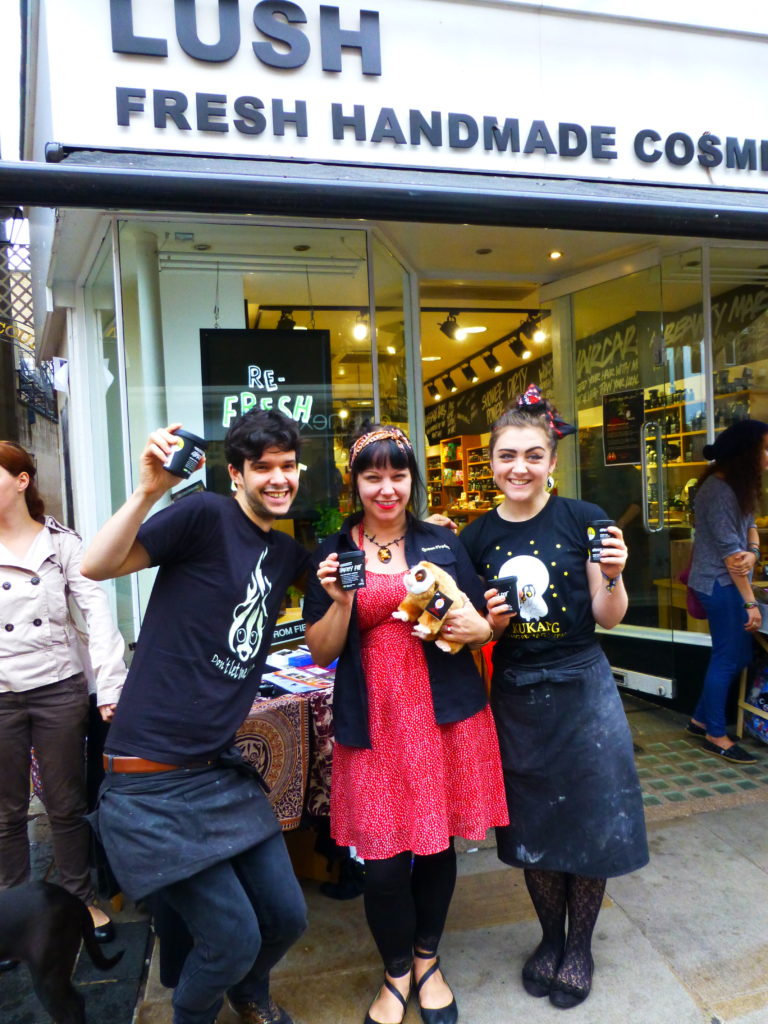This week we were very sad to receive the news that our application to Lush to hold a Charity Pot party at our local Lush Oxford store was denied because we accept funds from zoos. We first learned about the Charity Pot fund from our lovely associates at EAST, who are linked to a zoo (that is also a rescue centre), Monkey World. We subsequently have attended many conferences run by zoo conservation groups that have had Lush-funded attendees. It never occurred to us that Lush was anti-zoo, and indeed, we have always been funded by zoos and during that time, have done 3 Charity Pot parties, ran an event in the opening week of Lush’s flagship shop in Oxford street, our team members have worked for Lush and wrote articles about Little Fireface Project for the internal staff newsletter, and our team has passionately supported their eco and animal friendly products. Lush was also a major funder of our Slow Loris Forest Protector book programme. We thus feel so sad that our good friends and colleagues at Lush Oxford had to tell us such dark news.
We were denied to hold a Charity Pot party, in which we were going to have an event to educate the public about the still sadly growing problem of imagery of endangered species like slow lorises, on social media. It has now been shown many times that the more people see an animal in contact with humans, they are less likely to think that it is threatened. This event would have had great outreach and, based on previous experience, would have generated about £185 for our organisation.
So in reality that is not a huge financial loss – if even 1000 of our Facebook followers did not buy a Lush bath bomb and instead donated the £5 to us, it would be enough to run our project for about 3 whole months. If all of our ~10,000 Facebook followers did not buy a bath bomb and donated the same £5, we could run our project for more than a year! (this is partly based on the extreme commitment of our staff to work with very low pay and their passion for slow lorises). The bigger loss was to the public, who did not hear our message, and because so many Lush patrons are passionate about the environment, it is sad that we could not do this outreach.
I agree that the issue of ‘zoos’ is not black and white. There are pretty wonderful zoos out there, and some where I went and openly cried in public at the horrific state of the animals. By Lush denying us funding, it is as if they say we support that sort of zoo. The zoos we work with are passionate about conservation. The teams we have had the joy to work with inspire us to do some very difficult jobs, cheering us on, and wishing they could be in the field with us, and telling us how we make their jobs even more meaningful, knowing the animals in their care can be ambassadors to help save the dwindling populations in the wild.
Also people must consider that slow lorises are really not on the conservation radar of most big funders who over and over fund rhinos, tigers, chimpanzees…it is easier to get a £100,000 grant to see if an orang-utan uses its right or left hand to dip for honey than £500 to launch a year-long market survey for slow lorises, owls, civets, ferret badgers, otters and leopard cats combined! It is often said that the big charismatic species can serve to be umbrellas for the little brown nocturnal species…but with no research, no numbers and no checking on these species, there has been very little evidence to back these claims up, and it turns out that many of the small threatened species have totally different habitat requirements than the large ones. So it has been zoos who have stuck up for these underdogs and we simply cannot thank them enough.
We really want to express how we wish there could be a world where all animals could remain wild. Maybe that will happen one day, but we cannot just open the doors of zoos and let all the animals go. There are also countless people who love animals because they saw them in a zoo. Many zoos now focus more and more on educating the public about these hard issues. And the ‘modern’ zoo strives more and more to make habitats as natural as possible. Indeed, wild areas containing small fragmented populations must learn from zoos how to genetically manage these groups and even supplement them with food or food plants as humans take more and more of the earth and leave less and less for every other species.
Conservation is a huge fight – we can be branded hippies, tree huggers, etc – but without the environment and a complete ecosystem, we won’t have a planet or a life. Sadly there are probably always going to be evil and good people in the world, and to tar every zoo with the same brush is simply wrong. Companies like Lush support reintroduction projects – many of these projects employ untrained but well-meaning people who release the wrong species of a sick animal into totally unsuitable habitat where the animal starves to death in terror – yet because it is a sanctuary, it is painted with a different brush than a zoo. Because the animal is ‘released’ it is a happy ending. The potential for darkness in conservation is pretty huge. Thus we will continue to strive to work with people who love animals, who love slow lorises, and who care. Sometimes these people come in unusual guises but if we cannot work together with people from all walks of life, we are bound to lose. PROF ANNA NEKARIS
A little shout out to our zoo supporters past and present (I hope I did not forget anyone!) – Omaha’s Henry Doorly Zoo and Aquarium Columbus Zoo and Aquarium Cleveland Zoological Society Cleveland Metroparks Zoo Brevard Zoo Phoenix ZooBrookfield Zoo Roger Williams Park Zoo AAZK Chapter Moody Gardens Memphis Zoo Disney Conservation Fund Shaldon Wildlife Trust Paignton Zoo Environmental Park Longleat Safari Park Shepreth Wildlife Park Paradise Wildlife ParkNaturZoo Rheine DierenPark Amersfoort Zoo Augsburg



